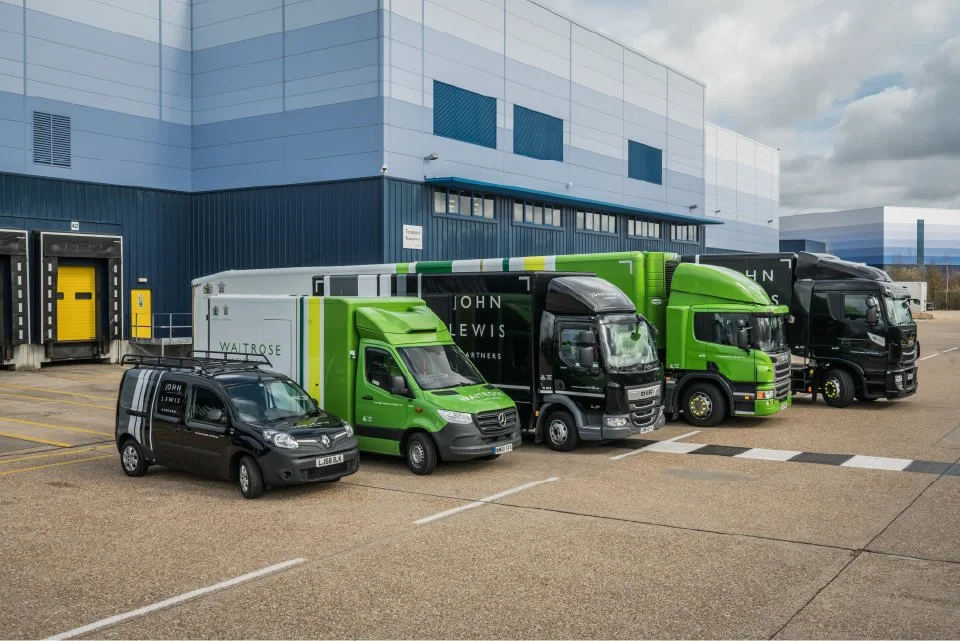Distribution
The Problem
The waste generated from Distribution is derived from full batches not being shipped in time, not matching quality standards, and other reasons why garments aren’t claimed from customs.
~7.21
MILLION
tonnes of textile waste generated globally per year which is the equivalent volume of 19 x O2, England (World’s 8th largest building).
$5.6
MILLION
waste value. Equivalent to employing an additional 400 garment workers in the USA every year.
One Solution
John Lewis Partnership is the parent company of brands, John Lewis & Partners and Waitrose & Partners. The Partnership is the UK’s largest employee-owned business, owned in Trust for the benefit of our 80,000 Partners. Founded as a better way of doing business, the Partnership champions equality, wellbeing and sustainability.
About the Solution
John Lewis Partnership has the ambition to remove all fossil fuel from it’s 5,500 strong fleet by 2030, and a commitment that the whole organisation will be Net Zero by 2035. The most challenging vehicles to tackle are the long distance heavy trucks. Our strategy for these is to transition to biomethane fuel, and we have been rolling these trucks out for several years. At the end of 2021 we expect to have 320 on the road - over half of our heavy truck fleet. For smaller vehicles we expect to buy nothing but electric cars, vans, and light trucks by 2024.
Sustainable biofuels play a really important role in the transition to a zero carbon economy. Biomethane heavy trucks reduce carbon emissions by around 80%, are quieter than diesel, popular with drivers, and have a great business case. They should be actively encouraged until a viable, cost effective zero tailpipe alternative is available.
Triple Bottom Line
Sustainability Impact Measurements
Environmental: Our plan to be free of fossil fuel by 2030 saves over 500,000 tonnes of CO2 over the 10 years starting with our 2020 baseline.
Social: Converting over 600 refrigerated trailers to electrical power reduces noise and emissions that are harmful to health, which are important issues in urban areas.
Economic: We are creating a holistic business case to transition to alternative fuels for transport operations and expect to save £100m in revenue cost over the 10 year plan.
WORLD LEADERS,
ACT NOW
Planet: Legislation across the world to responsibly manage textiles abandoned at customs, regulation and accountability for the decarbonisation of transportation, investment in biofuels infrastructure, and the elimination of airfreight.
People: Investment in a zero carbon economy to protect the health of humans across the world.
CASE STUDY: RATTI. Read on to discover how Ratti reduces waste related to Distribution by investing in demand alignment and AI. COMING SOON


